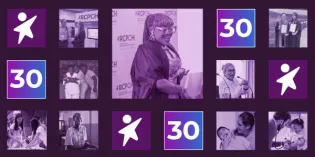
The report findings show a workforce under pressure and struggling to meeting demand, with health visitors also seeing first-hand the realities that families with babies and young children in the UK are facing.
The findings show:
- 91% of health visitors reported an increase in poverty affecting families over the past 12 months
- 91% reported an increase in families needing foodbanks
- 83% reported an increase in perinatal mental illness
- 75% reported an increase in domestic abuse.
Health visitors have witnessed first-hand the impact on babies and young children’s safety, health and development:
- 84% of health visitors reported an increase in children with speech, language and communication delay
- 76% an increase in child behaviour problems
- 60% of health visitors reported further increases in child safeguarding over the last 12 months (building on significant increases reported last year).
Only 7% of health visitors in the UK felt confident that all families would be able to access the support they needed when a problem was identified. 86% reported that there was not enough capacity in other services to pick up referrals for support/ treatment
In response to the statistics Dr Camilla Kingdon, President of the Royal College of Paediatrics and Child Health said:
The role of health visitors cannot be understated. Their work plays an incredibly important role in looking after babies, and their families, and in keeping them safe. They are regularly described as a safety net and are essential in both prevention and early intervention of ill health in babies and young children. Yet the findings of this year’s survey are a harrowing read.
The report paints a picture of a health visiting workforce under immense pressure, with practitioners struggling to meet the ever-rising demand. Many babies and young children have missed out on vital health reviews and were not seen by a qualified health visitor in the last year. As is sadly often the case, this disproportionately affects the most vulnerable families who often struggle to access services and depend on them the most.
The situation remains dire for many babies, young children, and their families, with health visitors seeing an increase in serious issues including the use of food banks, food scarcity, domestic violence, mental illness, homelessness, and safeguarding issues – all also symptoms of rising poverty.
It’s clear to all child health professionals that without further support and focus, we are fast approaching a crisis in child health. We urgently need a fully funded health and care workforce plan in place, working alongside a cross departmental child health strategy to ensure every child has the best start in life. Without this the inequalities gaps will widen; post-code lotteries of care will remain, and babies, children, young people, and their families will continue to suffer.







